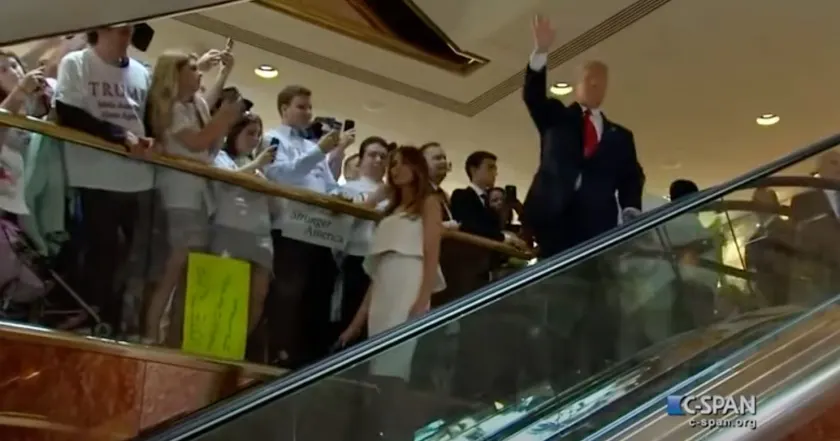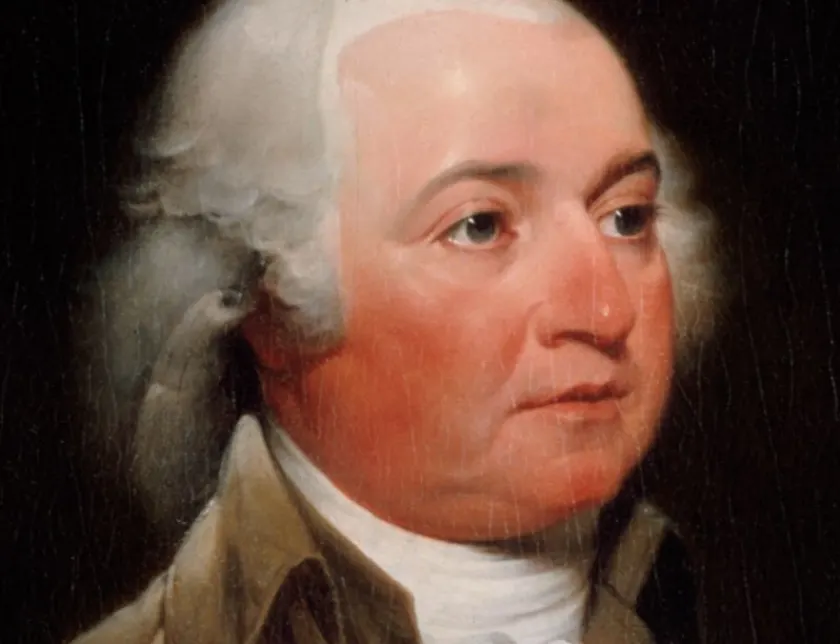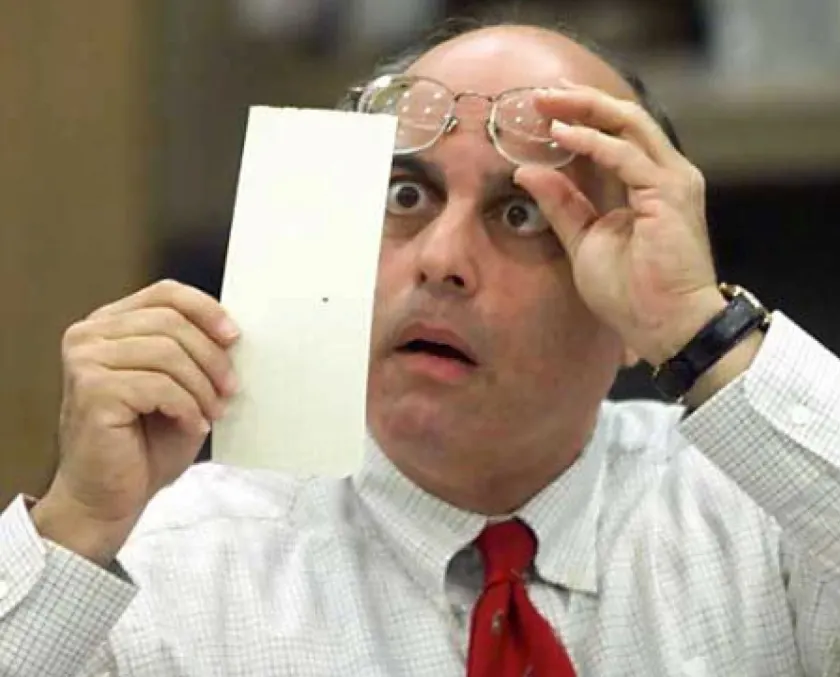A few days ago I was reading Alexander Keyssar’s outstanding The Right to Vote: The Contested History of Democracy in the United States. In his introduction, Keyssar writes, “Americans do place a high value on democratic institutions, and white Americans, at least, have long thought of themselves as citizens of a democratic nation—indeed, not just any democratic nation, but the democratic nation. According to our national self-image . . . the United States has been the standard bearer of democratic values on the stage of world history.”
Keyssar’s book was written in 2000. I doubt that any serious political scientist would write such a passage today. One of the most perplexing things about this moment in our history is how tens of millions of Americans have come to believe that denying the sanctity of elections and disrupting the peaceful transfer of power from one administration to the next is acceptable. In fact, researchers at the Public Religion Research Institute report that 30 percent of Republicans agree with the statement, “Because things have gotten so far off track, true American patriots may have to resort to violence in order to save our country.”
The U.S. used to send respected political figures like Jimmy Carter to third world countries as election observers. It may be time for some of them to send election monitors to the United States.
How did this happen?

The Escalator Ride That Changed and Challenged America: Donald Trump rode an escalator in Trump Tower to announce his candidacy for the presidency on June 16, 2015. (C-SPAN)
Well, a significant chunk of responsibility must belong to Donald Trump. Since he rode down the escalator at Trump Tower on June 16, 2015, Mr. Trump has said, on countless occasions, that if he lost his race for the presidency, the election must be rigged. He said this before the 2016 election when few pundits thought he would win against Hillary Clinton. He said this after the November 2016 election even though he won 306-232 in the Electoral College. At that juncture, he claimed that he won not just in the Electoral College but also the popular vote. On Jan. 23, 2017, the new president told congressional leaders that he only lost the popular vote count because between 3 million and 5 million illegal votes were cast for Hillary Clinton. This wild claim has never been even partially substantiated. He declared long before the 2020 election that he could only lose if the election was rigged. And he has repeated that baseless charge — explicitly repudiated both by his Attorney General William Barr and by the Department of Homeland Security — countless times since Nov. 3, 2020.
When a person of Mr. Trump’s national prominence and celebrity, indeed the president of the United States, makes these claims incessantly and with such vehemence, it is hardly surprising that millions of his supporters believe him. If in December 2020 Trump had grumbled that he was pretty sure the election had some troubling irregularities, but he would nevertheless accept the result for the good of the country, the mass of his supporters would have followed his lead.
Even now, if Mr. Trump called a press conference and said, “Enough. Despite my misgivings, I know that we must move on and put the election of 2020 behind us. I accept that Joe Biden is the duly elected president of the United States,” the national legitimacy crisis would soon cease to endanger the future of American democracy.
Donald Trump’s steady position, from 2015 until today, that the only way he could lose a presidential election was if the election were rigged, breaks one of the most important norms of American political life: that the loser concedes, promises to help restore national unity, and recedes so that the new president can do his or her job. This norm has been an exceedingly important feature of American democracy, a bulwark of national stability. And it goes all the way back to the beginning of the republic.
The Vituperative and Savage Election of 180

John Adams, a remarkable political philosopher, served as the second president of the United States (1797-1801), after serving as the first vice president under President George Washington. (archives.gov)
John Adams was crushed when he lost the presidency in the election of 1800 to his old friend, now rival and even momentary enemy, Thomas Jefferson, whom he regarded as something of a political lightweight, and whose electioneering tactics deeply offended Adams. Adams retreated to his modest farm near Boston and spent the rest of his life in the embittering conviction that he had not been sufficiently rewarded by the American people for his contributions to national independence, especially in the spring of 1776.
Before he left the District of Columbia for Quincy, Mass., Adams and Jefferson had a brief meeting in the White House. “I understand that you are to beat me in this contest,” Adams said, “and I will only say that I will be as faithful a subject as any you will have.”
Back home, he wrote to newly elected President Jefferson on March 24, 1801, three weeks after Jefferson’s inauguration: “This part of the Union [New England] is in a state of perfect Tranquility and I See nothing to obscure your prospect of a quiet and prosperous Administration, which I heartily wish you. With great respect I have the honor to be Sir your most obedient and very humble Servant.”
Lincoln: With Malice Towards None
After one of the most tumultuous decades in American political history, Abraham Lincoln was elected the 16th president of the United States on Nov. 6, 1860. His longtime adversary and the Democratic Party’s candidate in 1860, Stephen A. Douglas, wrote, “Partisan feeling must yield to patriotism. I’m with you, Mr. President, and God bless you.” Lincoln then named some of his most outspoken political rivals to his cabinet. In his brilliant first inaugural, Lincoln wrote: “We are not enemies, but friends. We must not be enemies. Though passion may have strained it must not break our bonds of affection. The mystic chords of memory, stretching from every battlefield and patriot grave to every living heart and hearthstone all over this broad land, will yet swell the chorus of the Union, when again touched, as surely they will be, by the better angels of our nature.” That is the spirit of America at its very best.
Kennedy versus Nixon, 1960
The presidential election of 1960 was one of the tightest in American history. John F. Kennedy won the presidency on Nov. 8 by a mere 112,827 votes, a margin of 0.17 percent. It was widely believed even then that the election results had been “rigged.” The Democratic mayor of Chicago, Richard J. Daley, was one of the last great machine politicians in America. Kennedy won Illinois by less than 9,000 votes, out of 4.75 million cast, a margin of 0.2 percent. In Texas, the home of JFK’s running mate Lyndon B. Johnson, Kennedy defeated Nixon by a 51 to 49 percent margin, by just 46,000 votes. Many of Nixon’s closest advisers, including outgoing President Dwight D. Eisenhower, urged him to demand a recount.
Nixon chose to concede. At 2:15 a.m. Nov. 9, at the Ambassador Hotel in Los Angeles, Nixon said, “One of the great features of America is that we have political contests, that they are very hard fought, as this one has been hard fought, and once the decision is made we unite behind the man who is elected. . . . I want Sen. Kennedy to know, and I want all of you to know that . . . that he will have my wholehearted support.”
And he said, “I have great faith about the future of this country, I have great faith that our people, Republicans and Democrats alike, will unite behind our next president in seeing that American does meet the challenge that destiny has placed upon us.”
In his post-Watergate memoir, RN, published in 1990, 30 years after the crushing defeat of 1960, Nixon returned to the issue of the possible corruption in Illinois and Texas. “There were stories of massive voter frauds in Chicago and Texas,” he wrote. “[Illinois Sen.] Everett Dirksen urged me to request a recount and demanded that I not concede.” Despite his (possibly valid) sense that the election had been stolen, Nixon conceded for the good of the country. In RN he said, “A presidential recount would require up to half a year, during which time the legitimacy of Kennedy’s election would be in question. The effect could be devastating to America’s foreign relations. I could not subject the country to such a situation.”
Nixon found the most important word: “legitimacy.” It is essential that the results of an election are regarded as legitimate. Otherwise, bipartisan governance is essentially impossible. Those who disagree on questions of policy or political principle can refuse to cooperate merely because they regard the “winner” as illegitimate.
Al Gore Does the Right Thing
Jump forward to the election of 2000, in which Vice President Al Gore ran against Texas Gov. George W. Bush. The election was so tight that it all came down to Florida, where the issue of overseas votes, the legibility of ballots (“hanging chads”) and other problems complicated the drawn out recount. Finally, the Supreme Court of the United States stepped in, stopped the recount, and therefore made George Bush the 43rd president of the United States. The court’s decision permitted the previous vote certification (for Bush) by Florida Secretary of State Katherine Harris to remain valid.

Judge Robert Rosenberg of the Broward County Canvassing Board examines dimpled and hanging chads on a punch card ballot on Nov. 24, 2000, during a vote recount in Fort Lauderdale, Fla. (uscd.edu)
Even 22 years later, it’s still not altogether clear who won the 2000 election. The sense is Bush — probably. On Dec. 13, 2000, one day after the Supreme Court ruling, Al Gore delivered a televised concession speech. This is the key paragraph:
“Now the U.S. Supreme Court has spoken. Let there be no doubt, while I strongly disagree with the court’s decision, I accept it. I accept the finality of this outcome which will be ratified next Monday in the Electoral College. And tonight, for the sake of our unity as a people and the strength of our democracy, I offer my concession. I also accept my responsibility, which I will discharge unconditionally, to honor the new president-elect and do everything possible to help him bring Americans together in fulfillment of the great vision that our Declaration of Independence defines and that our Constitution affirms and defends.”
That’s the American standard. Reading it now feels like a reversion to a more innocent era.
And Then John McCain
After losing decisively in 2008 to Illinois Sen. Barack Obama, Arizona Sen. John McCain gave one of the most moving concession speeches in American history on Nov. 5, 2008. The war hero and establishment Republican said:
“Sen. Obama and I have had and argued our differences, and he has prevailed. No doubt many of those differences remain. These are difficult times for our country, and I pledge to him tonight to do all in my power to help him lead us through the many challenges we face.
“I urge all Americans who supported me to join me in not just congratulating him, but offering our next president our goodwill and earnest effort to find ways to come together, to find the necessary compromises, to bridge our differences and help restore our prosperity, defend our security in a dangerous world, and leave our children and grandchildren a stronger, better country than we inherited.
“Whatever our differences, we are fellow Americans.”
You can feel the pathos in McCain’s words, but you can also hear — unmistakably — a brand of American patriotism that is now seemingly in short supply.
Conclusion
In 1960, Nixon’s partisans urged him to demand recounts, to file lawsuits, to refuse to accept the results of the election. Nixon pondered doing just that. In my opinion, he had more reason to distrust the election results than Donald Trump in 2020. Nixon was certain that the Kennedys were not above some election shenanigans and almost nobody, of either party, reckoned that Mayor Daley was immune from corruption. We know from the brilliant research of LBJ’s biographer Robert Caro that Lyndon Johnson had benefitted in very questionable election counts in his senate races in Texas. But Nixon, however much Watergate later sullied his reputation, was a constitutionalist. He conceded in 1960. And he turned over the White House tapes in August 1974, even though he recognized that in doing so he would be driven from the presidency.
We all recognize the American norm: the late-night congratulatory call, the gracious concession speech urging the country to rally behind the new president. The defeated candidate is expected — by unenforceable national norms — to say that he or she will do everything they can to smooth the transition, to help in any way, and to support the winner. Then the loser is expected to disappear for a time into private life, to avoid commenting on the unfolding political scene.
This gracious national ritual is not just a form of politeness. It is essential to the legitimacy of the American government. As we are learning more every day, democracy is fragile. It depends on principles that we learn in our junior high civics courses: that however disappointed we may be by the results of majority rule decisions, we have pre-pledged to abide by them — or to build a peaceful political coalition — a new majority — that can repeal what we consider misguided legislation. That the smooth and peaceful transfer of power between one set of individuals to another, from one party to the other, is one of the best inventions of the Enlightenment.
Donald Trump is the first failed candidate to refuse to concede, the first to persist in declaring that the election was rigged when all the most responsible figures in his administration have urged him to accept reality. He bruised and shattered many American norms as president, but none has been more important or consequential than his refusal to concede defeat with grace and dignity. And this was his seeming duty, even if, like Richard Nixon, he is privately sure the election was stolen.
Who knows what the elections of 2022 and 2024 portend? We appear to have moved across an invisible line — the American Norms — into an uncharted sea of intrigue, delegitimization, real or threatened violence.
Can we turn back from the brink that indicates to ourselves and the world that we no longer believe in the integrity of our elections or, for that matter, the peaceful transfer of power?
The jury is still out on this fundamentally important question.
In his magnificent first inaugural address, after one of the most hotly contested elections in American history, Thomas Jefferson said it perfectly:
“All, too, will bear in mind this sacred principle, that though the will of the majority is in all cases to prevail, that will to be rightful must be reasonable; that the minority possess their equal rights, which equal law must protect, and to violate would be oppression. Let us, then, fellow citizens, unite with one heart and one mind. Let us restore to social intercourse that harmony and affection without which liberty and even life itself are but dreary things.”
Republished with permission from Governing Magazine, by Clay S. Jenkinson

Governing
Governing: The Future of States and Localities takes on the question of what state and local government looks like in a world of rapidly advancing technology. Governing is a resource for elected and appointed officials and other public leaders who are looking for smart insights and a forum to better understand and manage through this era of change.
